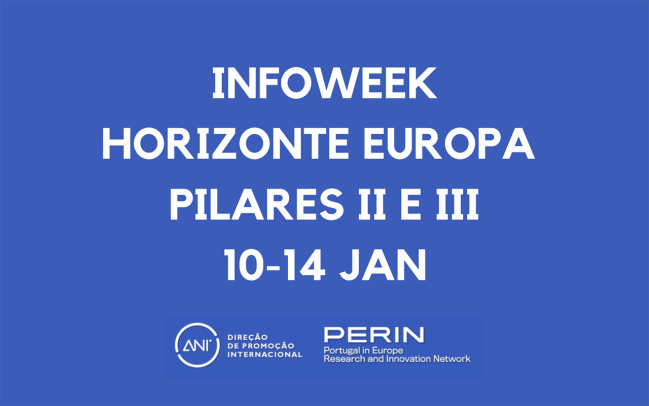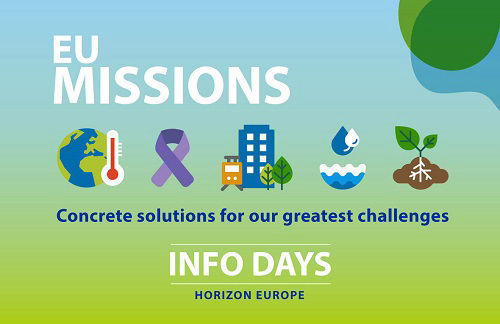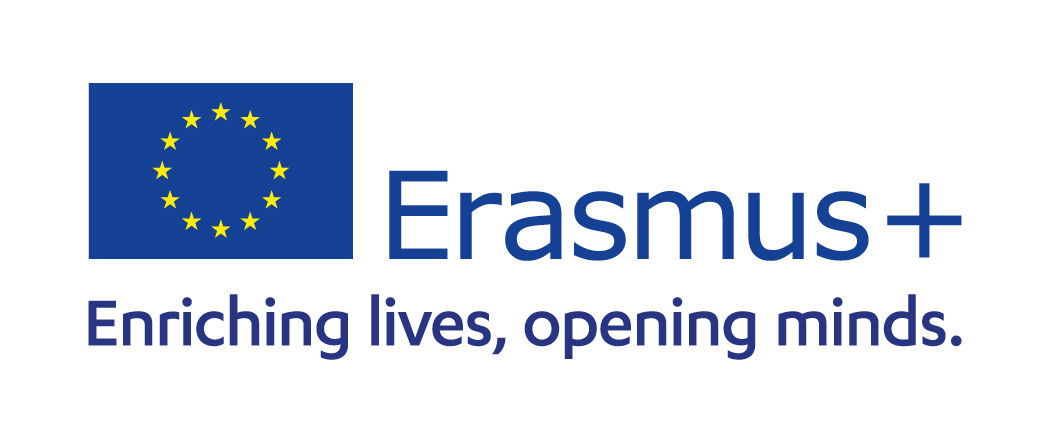
Car@s colegas,
Votos de um Excelente Novo Ano, repleto de ideias originais e soluções inovadoras, que consigam atrair bons parceiros e dar corpo a projetos sólidos, capazes de convencer as agências e instituições que financiam a investigação científica e o desenvolvimento tecnológico (IC&DT). Em termos de oportunidades de financiamento significativo, 2022 ficará certamente marcado pelas diversas Calls já anunciadas e outras que, entretanto, serão abertas no âmbito do Horizonte Europa, o maior programa multinacional de investigação e inovação em todo o Mundo. Apesar de, em diversos aspetos, ser uma continuidade do programa que o antecedeu, o Horizonte Europa traz algumas novidades que importa conhecer, incluindo a necessidade de uma ciência mais aberta e o foco colocado em algumas missões muito orientadas para grandes desafios, com objetivos específicos. A respeito das prioridades do Horizonte Europa, sugerimos aos colaboradores da FMUC dois artigos publicados na revista Nature que apresentam informação relevante e alguns números interessantes:
EU Science – The next €100 billion
How Europe’s €100-billion science fund will shape 7 years of research
Numa altura em que os principais players da IC&DT afinam a pontaria para as diversas calls no âmbito dos pilares e clusters do Horizonte Europa, a FMUC não pode deixar de estar na linha da frente deste processo para almejar alcançar resultados positivos. O Gabinete de Gestão de Investigação (GGI) tem estado a acompanhar de perto diversas iniciativas, participando em sessões formativas e informativas, de que damos destaque em duas notícias Breves desta newsletter.
Destacamos ainda nesta edição dois projetos de investigação envolvendo colaboradores da FMUC que receberam financiamento internacional, cuja implementação se iniciou no início deste novo ano – o TrainR4U, apoiado pelo EIT Health, e o LoLit, financiado pelo programa Erasmus+.
Que 2022 comece com energias renovadas e nos revele um Horizonte auspicioso!
Be FMUC!
Flávio Reis
Coordenador do GGI
Breves

Infoweek: “Iniciar 2022 com o Horizonte Europa
– Pilares II e III”
Decorreu entre os passados dias 10 e 14 de janeiro a infoweek, organizada pela ANI, dedicada aos pilares II e III do Horizonte Europa. O GGI marcou presença neste evento online, nomeadamente nas seguintes sessões: i) Cluster da Saúde, ii) Missão Cancro, iii) Cluster da Alimentação, Bioeconomia, Recursos Naturais, Agricultura e Ambiente e iv) Sessão dedicada ao Pilar 3: Europa Inovadora. De salientar que dada a importância dos conteúdos apresentados para a contratualização e implementação dos projetos financiados, a sessão dedicada a assuntos legais e financeiros foi gravada e encontra-se disponível através deste link: https://www.youtube.com/watch?v=Zdjpe8vK7TU

Decorreram nos passados dias 18 e 19 de janeiro os dias informativos sobre as missões do Horizonte Europa. Este evento online, que contou com a presença do GGI, teve como principal objetivo informar potenciais candidatos e stakeholders sobre os novos tópicos incluídos no programa de trabalho atualizado das Missões da União Europeia.
O programa detalhado e as sessões podem ser revistos através deste link: https://ec.europa.eu/info/research-and-innovation/events/upcoming-events/horizon-europe-info-days/eu-missions_en
Reunião de lançamento do projeto TrainR4U
No passado dia 19 de janeiro decorreu a reunião de lançamento do projeto “TrainR4U – Training Robot for Ultrassound”, financiado pelo EIT Health. Este projeto, cujo consórcio é liderado pelo Instituto Pedro Nunes e conta com 8 parceiros internacionais e 3 nacionais, tem como principal objetivo desenvolver um programa de treino especializado à distância, na área da ecografia, destinado a profissionais de saúde. Na UC o projeto é coordenado pelo Docente da FMUC Filipe Caseiro Alves.

Projeto LoLit aprovado para financiamento
no âmbito do Erasmus+
O projeto “LoLit – Low Literacy at Play”, liderado pela Leyden Academy on Vitality and Ageing, dos Países Baixos, foi aprovado para financiamento pelo programa Erasmus+: Cooperation partnerships in adult education. Este projeto tem como principal objetivo contribuir para a melhoria da literacia da população mais envelhecida com baixo nível de escolaridade e literacia digital, através de formas de aprendizagem mais apelativas e interativas. A participação da FMUC neste projeto resultou de um contacto efetuado pelo GGI no evento de matchmaking do EIT Health em 2019. Integram a equipa da FMUC os investigadores João Malva (coordenador) e Flávio Reis e a Gestora de Ciência e Tecnologia Inês Costa. Fazem ainda parte do consórcio a Universidade de Copenhaga, da Dinamarca, e a Associação Portuguesa para a Inovação e Empreendedorismo Social e Digital – AI9. A reunião de lançamento do projeto decorreu no dia 24 de janeiro.
OPORTUNIDADES DE FINANCIAMENTO FUNDING OPPORTUNITIES
The following Calls will be available:
• HORIZON-CL6-2022-FARM2FORK-01-07 - Fair, healthy and environmentally-friendly food systems from primary production to consumption
• HORIZON-CL6-2022-FARM2FORK-01-09: Microbiomes in food production systems
• HORIZON-CL6-2022-FARM2FORK-01-10: Integrated surveillance system to prevent and reduce diet-related Non Communicable Diseases (NCDs)
Further information available at:
https://ec.europa.eu/info/funding-tenders/opportunities/docs/2021-2027/horizon/wp-call/2021-2022/wp-9-food-bioeconomy-natural-resources-agriculture-and-environment_horizon-2021-2022_en.pdf
Applicants are invited to apply from all fields in neuroscience. New York Stem Cell Foundation (NYSCF) is committed to supporting a broad range of neuroscience research areas representative of the field, taking into account the immense progress and changes in the field in the last decade. To that end, NYSCF especially encourages applications from neuroscientists whose research areas may be under-supported by traditional funding mechanisms and/or underrepresented in the field as a whole.
This career development award provides up to $1.5 million in flexible funding over 5 years.
Further information available at:
https://nyscf.org/programs/extramural-grants/applicants/neuroscience-investigator-awards/
New York Stem Cell Foundation (NYSCF) NYSCF is soliciting applications from early career investigators for awards to be used for exploring the basic biology and translational potential of stem cells. The aim of this initiative is to support highly innovative, emerging scientists whose pioneering approaches have the potential to transform the field of stem cell research, and advance understanding and use of stem cells in the development of treatments for human disease.
This career development award provides up to $1.5 million in flexible funding over 5 years.
Further information available at:
https://nyscf.org/programs/extramural-grants/applicants/stem-cell-investigator-awards/
The Muscular Dystrophy Association Idea Awards are intended to support bold, innovative research ideas that can have an impact in the field of neuromuscular disease. The idea should be supported by a strong scientific premise and include a feasible experimental plan. Eligible applicants must hold a Doctor of Medicine (MD), Doctor of Philosophy (PhD), Doctor of Science (DSc) or equivalent degree and be a professional or faculty member (professor, associate professor or assistant professor) at an appropriate educational, medical or research institution. The maximum grant is $50,000 for one year.
Further information available at:
https://www.mda.org/science/funding-opportunities
The Louis-Jeantet Prizes were established in 1986 and are presented annually to experienced researchers who have distinguished themselves in the field of biomedical research in one of the member states of the Council of Europe. They are not intended solely as the recognition of work that has been completed, but also to encourage the continuation of innovative research projects. The prizes are awarded to fully active researchers whose scientific efforts are focused on biomedical research. The sum currently available to each prize-winner amounts to CHF 500,000, of which CHF 450,000 are to be used for financing ongoing research and CHF 50,000 are given to the researcher personally. Nominees for the Louis-Jeantet Prizes must be nominated either by scientific personalities (without any family ties with the nominee), or by institutions (universities or major agencies funding research), who possess detailed knowledge of the nominee’s work.
Further information available at:
https://www.jeantet.ch/en/louis-jeantet-prize/prix-louis-jeantet/
Grants are offered for basic and clinical mechanistic studies understanding and improving insulin delivery and action. Grants are offered for basic, clinical-experimental studies, specifically with translation concepts aiming at exploiting existing technology as well as identifying innovative approaches for insulin delivery systems and monitoring insulin therapy. The maximum grant is €100,000 per project.
Further information available at:
http://www.europeandiabetesfoundation.org/workshops/124-efsd-and-sanofi-outlook-next-100-years-insulin-innovative-insulin-delivery-and
Identify and support innovative clinical and scientific research focused on gaining greater insight into the biologic roles of Alpha-1-Antitrypsin (AATD). Eligible candidates are early career clinicians and scientists under 40 at the time of application who are new to the field, as well as those who are already studying AATD. The award offers two annual grants of €50,000 each (one for clinical research and one for basic research to support a 12-month project.
Further information available at:
https://www.alta-awards.com/en/home
FCT has announced the 2022 call and similar as last year there will be two categories:
Scientific Research and technological development projects – either individual or in consortium they should focus in relevant and innovative scientific questions which contribute in a significant way for the advance of scientific knowledge. Imply scientific production throughout the project. Maximum duration – 36 months with a budget up to 250 000€.
Exploratory projects (PeX) – for projects focusing on scientific or technological research exploring novel/original ideas or concepts with innovation potential. Eligible only for individual applications, projects must have a maximum duration of 18 months with a budget up to 50 000€.
Please bear in mind that if you had an overall rate lower than 5 you cannot apply this year. We strongly advise the careful analysis of the opening notice for this call.
Further information available at:
https://www.fct.pt/apoios/projectos/concursos/ICDT/index.phtml.en
Martín Villar Haemostasis Awards: Eligible candidates are scientists and clinicians up to 40 years of age with an innovative idea relevant to haemophilia and von Willebrand disease pathologies or management with plasma-derived protein therapies. The award offers €50,000 to one applicant (clinical research or basic research) to support a 12 month project.
Further information available at:
https://www.martinvillar-awards.com/en/home
This programme aims to encourage new projects aimed at advancing current knowledge in the field of diabetes associated with cardiovascular disease. Grants are offered for basic and clinical studies. Translational studies are especially welcome.
The maximum grant is €100,000 per project.
Further information available at:
http://www.europeandiabetesfoundation.org/workshops/125-efsd-and-sanofi-european-diabetes-research-programme-diabetes-associated
Excellence hubs are an initiative to strengthen regional innovation excellence in placed based innovation ecosystems where companies, research institutions, governmental bodies and societal actors are mutually reinforcing each other in a territorial context and together raise the level of innovation excellence in their regional fabric. Consortia must include at least two different place based R&I ecosystems in at least two different countries eligible to host the coordinator under the widening part of Horizon Europe. Each ecosystem needs to include four different categories of actors i.e. a) academic institutions b) business entities c) public authorities or authorized agencies and d) societal actors.
Further information available here.
ERA Chairs projects bring outstanding academics, with proven research excellence and management skills, to universities and research institutions in Widening countries with potential for research excellence. They aim to attract and maintain high quality human resources under the direction of an outstanding researcher (the 'ERA Chair holder') while at the same time implementing structural changes necessary to achieve excellence on a sustainable basis.
Further information available here.
The ERC Consolidator Grants are designed to support excellent Principal Investigators at the career stage at which they may still be consolidating their own independent research team or programme. Principal Investigators must demonstrate the ground-breaking nature, ambition and feasibility of their scientific proposal.
Consolidator Grants may be awarded up to a maximum of €2.000.000 for a period of 5 years.
Further information available here.
Identify and support innovative clinical research projects focused on gaining a greater insight into primary and secondary immunodeficiency diseases. The programme provides financial support to young scientists and clinicians who wish to undertake a research project that seeks to improve immunodeficiency awareness, diagnosis and immunoglobulin therapy. The applicant must be under the age of 45 at the time of letter of intent submission. The award offers one annual grant of €50,000 to support a 24 month project.
Further information available at:
https://www.aspire-awards.grifols.com/en/home
Funding is offered for research projects that advance knowledge about the spine, including its characteristics, injuries, disorders and diseases. Any clinical or non-clinical application for research will be considered if it is related to the spine. Funding is only available for development grants (up to €10,000). The funds are intended to help develop a pilot study. Some examples are: methodological advice (epidemiologist, biostatistician), discussion with collaborators, formal literature review, translate outcome measures and test the feasibility of trial material. The application must link to the intended pilot study, indicate a timeline and give a detailed budget. The applicant or at least one member of the research team must be a member of EUROSPINE.
Further information available at:
https://www.eurospine.org/types-of-grant.htm
The programme is intended to stimulate and accelerate European research on the interrelation and crosstalk of different organs e.g. heart, kidney, pancreas, gut, liver and brain and related pathophysiology in diabetes and its complications and the impact of therapeutic interventions for this complex condition. Maximum award values are €100,000 for basic and/or clinical research projects.
Further information available at:
http://www.europeandiabetesfoundation.org/workshops/96-efsdboehringer-ingelheim-european-research-programme-multi-system-challenges-diabetes
The following Calls will be available:
• HORIZON-HLTH-2022-STAYHLTH-02-01: Personalised blueprint of chronic inflammation in health-to-disease transition
• HORIZON-HLTH-2022-ENVHLTH-04-01: Methods for assessing health-related costs of environmental stressors
• HORIZON-HLTH-2022-DISEASE-07-03: Non-communicable diseases risk reduction in adolescence and youth (Global Alliance for Chronic Diseases - GACD)
• HORIZON-HLTH-2022-DISEASE-07-02: Pandemic preparedness
• HORIZON-HLTH-2022-DISEASE-07-01: Support for the functioning of the Global Research Collaboration for Infectious Disease Preparedness (GloPID-R)
• HORIZON-HLTH-2022-CARE-08-04: Better financing models for health systems
• HORIZON-HLTH-2022-TOOL-11-01: Optimising effectiveness in patients of existing prescription drugs for major diseases (except cancer) with the use of biomarkers
• HORIZON-HLTH-2022-TOOL-11-02: New methods for the effective use of real-world data and/or synthetic data in regulatory decision-making and/or in health technology assessment
• HORIZON-HLTH-2022-IND-13-01: Enhancing cybersecurity of connected medical devices
• HORIZON-HLTH-2022-IND-13-02: Scaling up multi-party computation, data anonymisation techniques, and synthetic data generation
• HORIZON-HLTH-2022-IND-13-03: New pricing and payment models for cost-effective and affordable health innovations.
Further information available at:
https://ec.europa.eu/info/funding-tenders/opportunities/docs/2021-2027/horizon/wp-call/2021-2022/wp-4-health_horizon-2021-2022_en.pdf
HORIZON-MISS-2021-CANCER-02-01- Develop new methods and technologies for cancer screening and early detection
https://ec.europa.eu/info/funding-tenders/opportunities/portal/screen/opportunities/topic-details/horizon-miss-2021-cancer-02-01
HORIZON-MISS-2021-CANCER-02-02-Develop and validate a set of quality of life and patient preference measures for cancer patients and survivors
https://ec.europa.eu/info/funding-tenders/opportunities/portal/screen/opportunities/topic-details/horizon-miss-2021-cancer-02-02
HORIZON-MISS-2021-CANCER-02-03- Better understanding of the impact of risk factors and health determinants on the development and progression of cancer
https://ec.europa.eu/info/funding-tenders/opportunities/portal/screen/opportunities/topic-details/horizon-miss-2021-cancer-02-03
Antithrombin Research Awards (GATRA): Identify and support research projects on current and new uses of Antithrombin as a therapeutic product and to establish new and long-lasting cooperation with participating scientists and clinicians, to strengthen and increase the existing network between researchers and the company and to foster relationships with KOLs in different fields. The award offers one annual grant of €50,000 to support a 12 month project.
Further information available at:
https://www.gatra-awards.com/en/home
Albumin Awards Program (ALBUS): Recognize research that broadens the knowledge base of albumin's role as a therapeutic product. Proposals may include, but are not limited to: efficacy, mechanism of action, safety and tolerability, quality of life and pharmacoeconomics. The award offers two annual grants of €50,000 each to support a 12 month project.
Further information available at:
https://www.albus-awards.com/en/home
Funding for basic or applied research projects within three funding areas: Daylight - research into the effects and utilisation of daylight in three fields: Daylight & Human; Daylight & Nature; Daylight Technology; Healthy Ageing - research that aims to maintain or increase the functional ability of older people. This includes basic as well as applied research in the fields of biology, medicine, psychology and neurosciences and ophthalmology. Grants typically range between CHF 50,000 and CHF 100,000 per year for a project duration of one to four years.
Further information available at:
https://veluxstiftung.ch/funding-areas/